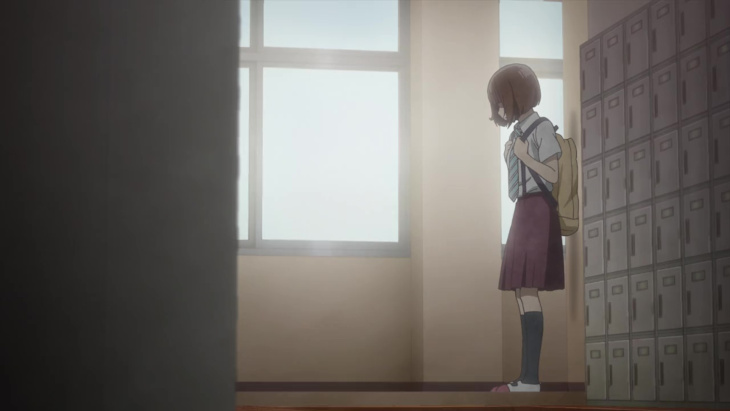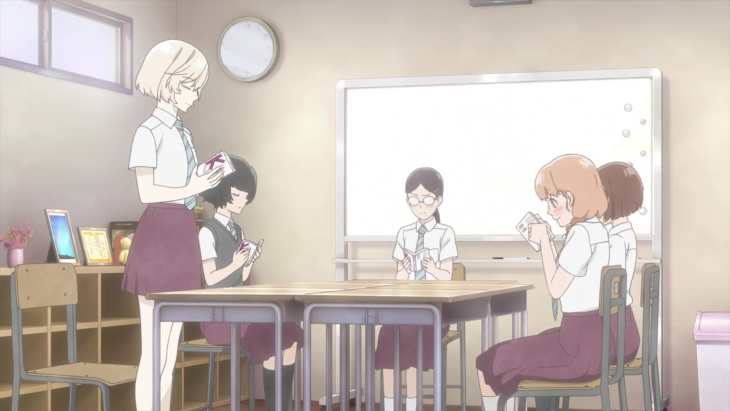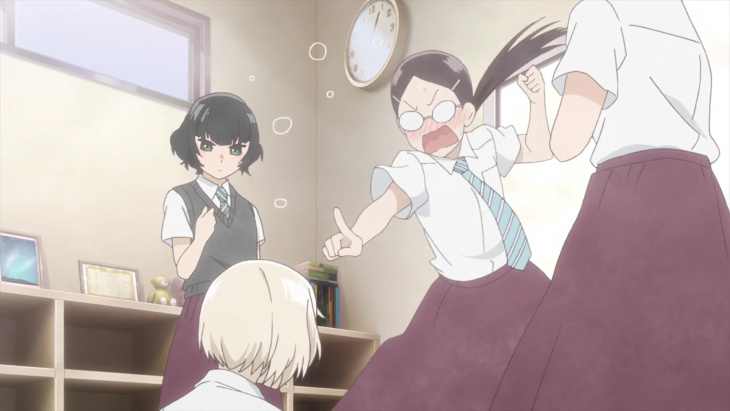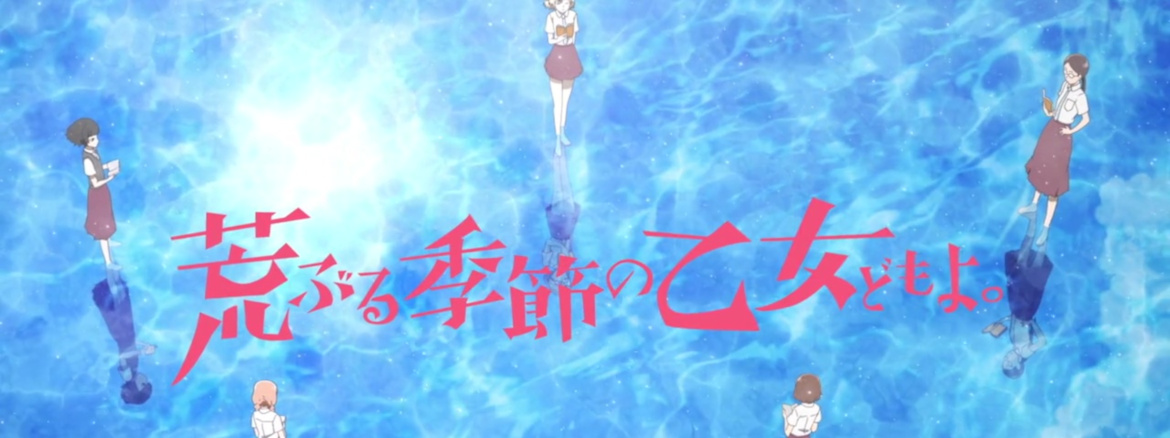
“This world has too much sex in it.”
In the case of certain series, it’s hard to not just throw your hands up and say “Your mileage may vary,” and Araburu Kisetsu no Otome-domo yo. or O Maidens in Your Savage Season is definitely one of those titles for me. On paper, the idea of a contemplative series about high school girls grappling with their understanding of mature relationships sounds intriguing, but in practice there is a problem with that. By focusing in on those moments of sexual frustration, you end up with a series that is about 90% awkward interactions where the entirety of your female cast seem to think primarily about sex. As may be obvious, I was never a Japanese highschool girl (Despite some of my friends’ cosplay suggestions) and, therefore, I’m not in a position to definitively judge this series’ evaluation of their mindsets, but I think it is worth calling into question. To put it bluntly, Araburu Kisetsu no Otome-domo yo. needs to get its mind out of the gutter for a bit, as its attempts to focus solely on one aspect of adolescence leave it feeling awkward and one note.

Our five main characters are all members of their schools literature club. We have Onodera Kazusa, who is attracted to her neighbor and childhood friend, Norimoto Izumi, who is the rather prudish president of the club… and there are 3 others. I haven’t gotten a grip on their characters yet, and, outside of one being a bit of a distant beauty and another being an aspiring author, they feel under explored in this first episode. Onodera stands out because she’s our main character, and Norimoto stands out due to her aversion to sexual content and discussion. This ties into my biggest complaint about the first episode. Sex is everywhere. Characters in the background are constantly talking about it. Every book that the characters read seems to fixate on it. Every conversation eventually ties back into the topic. And how prolific is sexual content in Japanese novels? I haven’t read any Japanese novels, so my best comparisons would be to look to the works I read in high school which were those of Hawthorne, Hemmingway, or McCarthy. They never exactly set the sheets on fire. This episode paints a bizarre picture of the lives of its protagonists, but I feel it’s a very narrow and shallow glance.

The studio behind this work is Lay-duce whose most notable work is probably either Magi: Adventure of Sinbad or last year’s Release the Spyce. It’s a solid work on the animation front. As a slice-of-life series, Araburu Kisetsu no Otome-domo yo. doesn’t generally call for much heavy flexing when it comes to visuals, but there a relatively kinetic scene towards the end of the episode that was well realized. I’m more than a little perplexed by the target demographic for this series. It’s classified as shonen, but avoids the fan-servicey visuals that are often prevalent in shonen works that focus around romance. On the other hand, the fixation on sex is irritatingly extreme, and could theoretically be intended to appeal to that audience, but then why is it presented in such an abrasively awkward way. I don’t understand who this show is for or why everything in it needs to tie back to that single topic. Much like Norimoto Izumi, I’m left wondering why sex has so completely engulfed the work.
Before I wrap up, a few Notes and Nitpicks:
- I don’t know that I ever encountered people just idly sitting around talking about sex in high school. My experience may be different from others, but the degree to how often this comes up in the show is insane.
- Onodera has a close friend who is part of the literature club, but she leaves almost no impact in this episode. Of the five main girls, she’s easily the most underdefined one currently.
- I really wish I knew how much of my reaction to this was due to my own limitations, and how much was just the show.
- Putting a rating on this one is really difficult as I can’t tell if this series will appeal to its demographic, whether it achieves what it sets out to achieve, or if is in any way a strong representation of… anything, really. I wanted to like this one.





Add comment